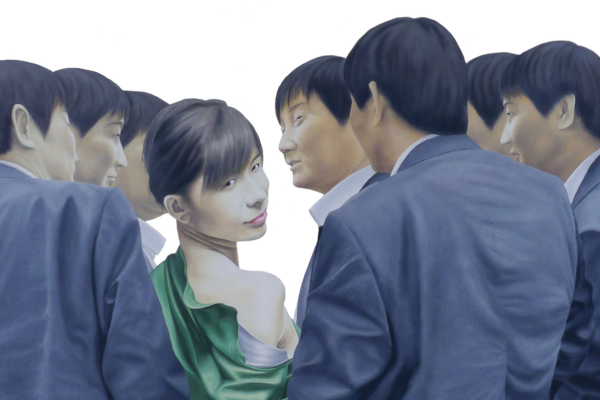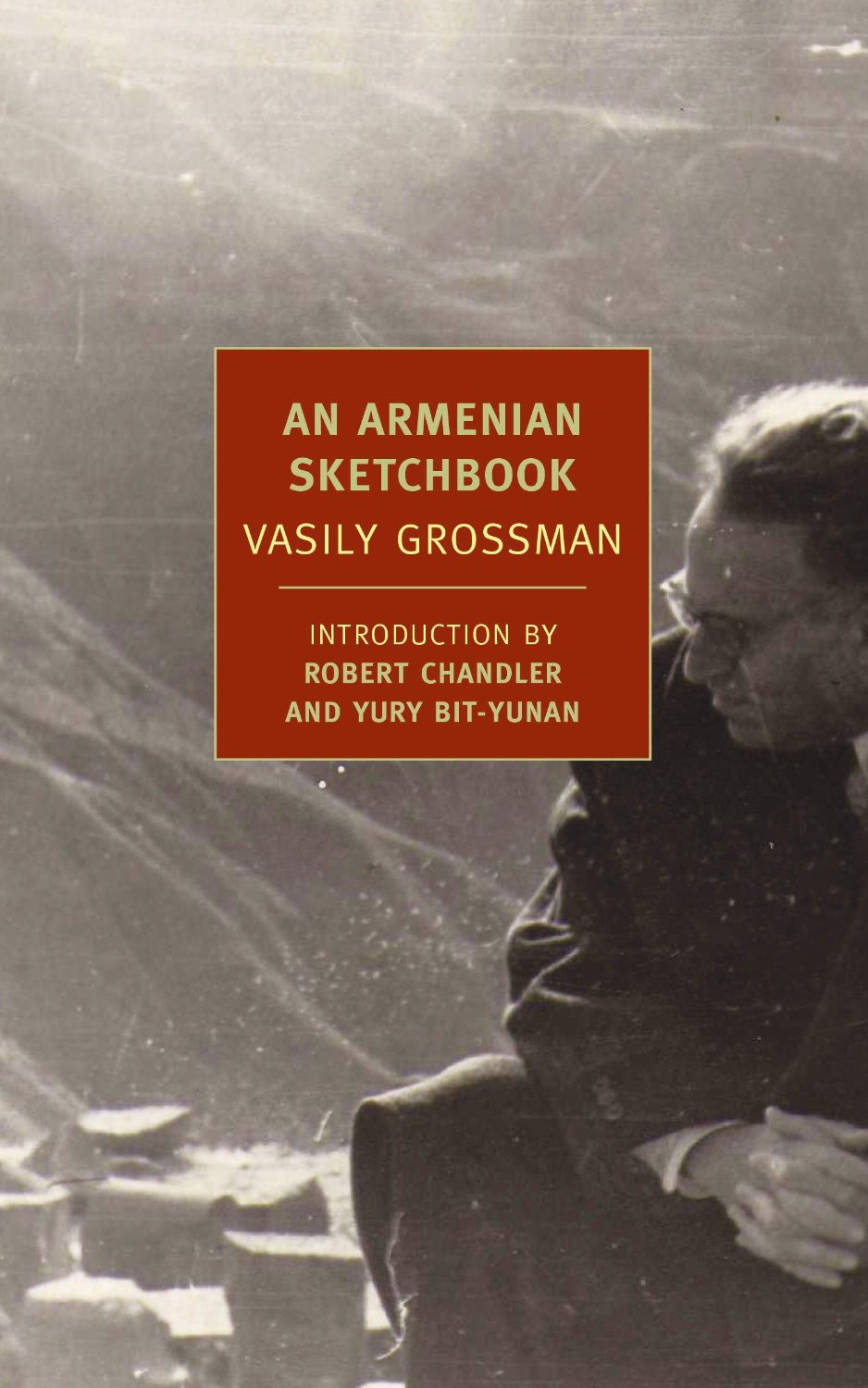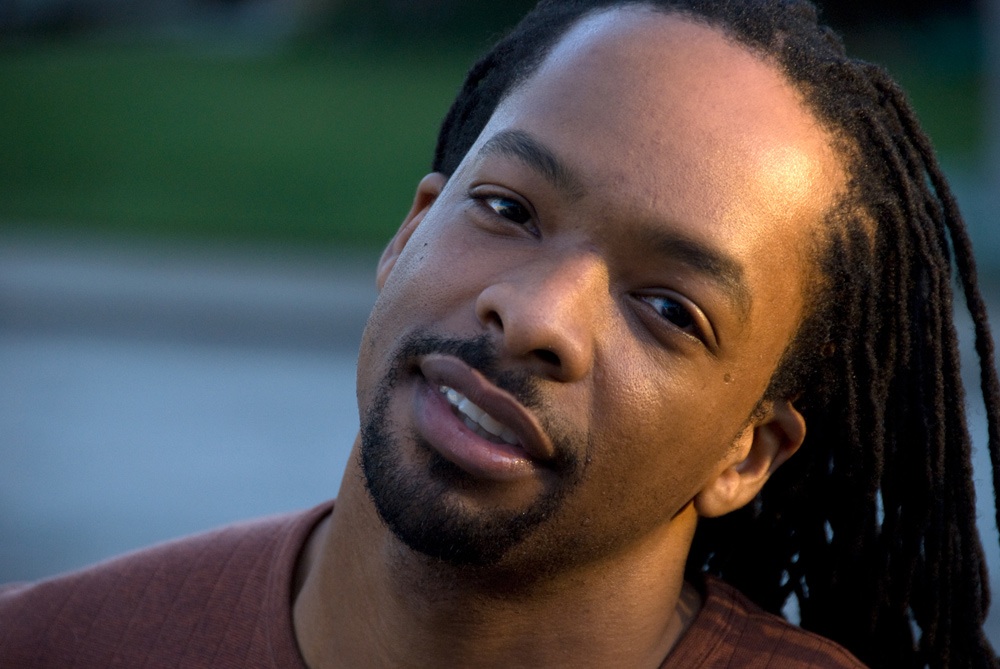By Sihan Tan
How does one argue for the burning of books? Qin Shi Huang, the First Emperor of China and mastermind behind her Great Wall, incinerated three thousand years of literature precisely because of his love for the past, or so Borges romanticises. Not exactly, says Yan Lianke, the sui generis Chinese writer whose three decades spanning career returns time and again to the Cultural Revolution. Aren’t all acts of abolishing the past motivated by a desire for history to begin anew? And because books do burn, the Henan native has spoken, in an interview with The Guardian, of his wish to address an “amnesia with Chinese characteristics”, a state-administered loss of memory that “the regime sees as essential to its survival”.
Yan, winner of the 2014 Franz Kakfa Book Prize, has had several of his works banned, not burned, in China. These include his first novel, The Joy of Living, which got him expelled from the army; Dreams of Ding Village , previously adapted into a film starring Chinese superstars Zhang Ziyi and Aaron Kwok; and Serve the People!, another satirical opus chronicling starvation and AIDs during The Great Leap Forward. A military propaganda writer upon enlistment in his teens at the end of the Cultural Revolution, Yan is not unfamiliar with the mechanics of this particular amnesia “achieved by shackling people’s minds, altering historical records, manipulating textbooks, controlling literature and the arts, and using financial incentives to entice people to give up their memories.” Perhaps as a consequence of his country’s growth during the Reform Era, which mirrors the length of his own career, it is precisely China’s eagerness for the new that Yan Lianke’s latest work The Explosion Chronicles seeks to resist.
Crisply translated by Carlos Rojas, The Explosion Chronicles follows the Kongs and two other families of train robbers, mamasans and industrial bigwigs in the backwater village of Explosion. The race to become its new mayor quickly mutates into a race to ‘metropolise’ Explosion. Greed and Capitalism are the twin forces of gross development, and the hyper-linear novel reads as a breathless set of historical chronicles destined for combustion. As far as loose trilogies go, The Explosion Chronicles can be tryptyched with his other novels, Lenin’s Kisses and The Four Books, the latter of which was shortlisted for the 2016 Man Booker International Prize.
Yan Lianke has won two of China’s premier literary awards, the Lu Xun Literary Prize and the Lao She Literary Award, but has only been belatedly discovered in the last decade through his English translations. In an exclusive interview with the Columbia Journal, courtesy of his translator Carlos Rojas, the Beijing-based writer talks about coining the term Mythorealism, the need for ‘the story of China’, censorship and writing from the periphery.
Questions and Answers translated by Carlos Rojas
Sihan Tan: What was your personal motivation in penning The Explosion Chronicles and how is it similar or different from your older books?
Yan Lianke: My only motivation in writing The Explosion Chronicles was simply to write a different sort of novel. I wanted to use an entirely new structure and narrative form to tell a “mythorealist” Chinese story—a miraculous story about China and its people.
ST: You coined the intriguing genre term ‘Mythorealism’ to describe his works and its increasingly popular standing — with comparison to Latin American ‘Magical Realism’ — seems almost an act of resistance to the rampant neo-capitalism of modern China: existing at once a homage to the rural, more naturalistic past and a spiritual defiance before the 21st century’s eagerness for the New. I understand this blend of realism and mysticism has existed in the East since the sage days of Lao Tzu, going on to Water Margin, Liao Zhai Zhiyi; to films such as Zhang Hanyi’s Life After Life and Bi Gan’s Kaili Blues who are both contemporary directors in their twenties. Could you say more about this continuous Mythorealism ‘antidote’ to a persistent amnesia akin to book-burning, and the role The Explosion Chronicles plays in keeping the dialogue between the non-linear past and present going?
YL: “Mythorealism” itself is not something I invented or created, but rather it is a product of contemporary Chinese reality. All I did was discover and help consolidate it. Actually, the appearance of mythorealism is merely a gesture of resistance to twenty-first century processes of globalization and a world view that stresses novelty and eternal contradiction. Mythorealism is also a gesture of resistance to antiquated literary formats, and attempts to offer stagnant world literature a bit of novelty and new possibilities. Within the Western canon, mythorealism can be traced back to the Bible, Homeric epics, and so forth, while in a Chinese context it can be traced back to classics such as The Classic of Mountains and Seas, Strange Stories from a Chinese Studio, Journey to the Western, and so forth. As for films such as Life After Life and Kaili Blues, I haven’t seen them, so there isn’t much I can say. However, what I can say is that mythorealism is not solely a product of the classics, but rather is also a product of Chinese reality. Contemporary China, regardless of whether we view it from an economic, political, human, moral, or spiritual perspective, is very complex, odd, and strange, and is impossible to understand; and we therefore have no choice but to use a term like mythorealism to describe and summarize it. With the emergence of mythorealism, Chinese literature has been able to provide a new and more accurate explanation of Chinese history, establishing a mutually transformative relationship China’s reality and its history. More importantly, with mythorealism it is possible to create a true “story of China” and to generate a prototypically “Chinese” character who as been missing from Chinese literature ever since Lu Xun’s satirical early twentieth century work “The True Story of Ah Q.” I feel it is precisely in this that we may find the literary significance of The Explosion Chronicles.
ST: I’m thinking of Serve the People! and the writers, Shen Congwen, Wang Anyi, Can Xue and Mo Yan. Does everything, especially in the narrative of Modern China, begin in the village? Should it end there too?
YL: Thank you for your very perceptive question. I can’t speak for other authors, but feel that all of my works end in the village, while also representing the end of the village itself, the destruction of the village. In literary terms, an end is also a beginning, and destruction may also mark a moment of new creation.
ST: As with your prior books, the propulsive, deceptively simple narrative style of The Explosion Chronicles services the similarly relentless and porous nature of the Mythorealistic story. Could you talk more about your influences, the difference between your influences and your hope for the future of this broad and brisk style of narrative technique? Would it be appropriate for Western writers to write in a similar way or is it something specific to the East?
YL: I consider your characterization of my narrative style as “propulsive” to be a compliment of the highest order. Chinese novels generally have an excessively slow and convoluted narrative structure—to the point that it impacts their readability. Accordingly, I hope that the background rhythm of my novels will be powerful and propulsive, like a steam engine; and that they will have a simple narrative but rich content, with a clear structure but full of cultural significance. This is the sort of structure and narrative to which I aspired in writing The Explosion Chronicles. The genre of the historical chronicle occupies an important position in Chinese culture, as can be seen in works such as Sima Qian’s Records of the Historian, Romance of the Three Kingdoms, as well as the local gazetteers that can be found in every province, city, and county throughout the country. It is this tradition of the historical chronicle that provided the opening and the narrative path out of which The Explosion Chronicles emerged. Therefore, this history of Explosion and its people becomes contemporary Chinese literature’s most distinctive “story of China”—out of which emerged the narration of The Explosion Chronicles itself. I hope that my readers—both in China and abroad—will be able to accept and appreciate this narrative mode. But at a more basic level, I have pursued this narrative form out of purely literary considerations, and did not give much thought to how Chinese or foreign readers would receive it—though I remain confident that readers will ultimately accept it the work as good literature.
ST: You have had various run-ins with censorship. What are your hopes for the future of literature in China and advice for writers in similar political situations?
YL: It is true that China has a strict censorship system—though as for myself, I personally don’t have a censor. My mind is free and unbounded, and I can use my free imagination and creativity to write my novels. With respect to questions of censorship and publication, I try not to think about them. My only objective when I write is to do so in the freest manner possible. In this respect, I hope that my readers, fellow authors, and friends in China and abroad will approach my novels as purely literary creations, and not view them in political or ideological terms. To view my works from any perspective that is not fundamentally literary reflects a fundamental misunderstanding of my project.
ST: There is emerging consideration for peripheral writers outside of the Western Canon. To some degree, the nature of works of Alain Mabanckou to Hungary’s László Krasznahorkai explore, in your words, “ a kind of ‘non-existent’ reality, an invisible reality, a reality that is occluded by reality.” Do you envision the increasing influence of Mythorealism to continue in world literature?
YL: With respect to mythorealism’s ability to represent a kind of “non-existent” reality, an invisible reality, and a reality that is occluded by reality,” it is possible that these are characteristics that are unique to China, but it is also possible that they are characteristics that may be found throughout the wold. As for whether mythorealism has been widely adopted among “marginal,” “third-world authors,” this is not a topic I have considered in detail, though in general I’m convinced that mythorealism is something that has a long history but is particularly prominent in contemporary China. In the future, mythorealism may become even more pronounced is other areas around the world, and it may therefore emerge as a new reality for literary traditions outside of China.
ST: Being a 3rd generation immigrant Chinese, there is an indescribable nostalgia when contemplating literature from the mainland. What would you say to the millions of Chinese people worldwide, having taken the leap of leaving one’s village behind to populate all parts of the world (an external and simultaneous antecedent to the mass migration of the young to big cities in China), and are no longer in touch with their dialects, folk tales and roots?
YL: Of course, I always hope that my novels will offer readers a kind of legend and a taste of the mythoreal, while also creating a dialogue with overseas Chinese around the world.
Questions and Answers in Chinese (translated by Carlos Rojas):
陈思瀚:你写《炸裂志》的个人目的是什么?写《炸裂志》跟写你其他小说的目一样不一样?
阎连科:写作《炸裂志》没有什么其它目的,就是为了写出一部不一样的小说,用全新的结构与叙述,讲一个“神实”的中国故事和今日“神奇”的中国与“中国人”。
思瀚:你发明“神实主义”这个概念来描写自己的作品,而这个写法好像是在反抗新中国越来越普遍的“新资本主义”--这个概念又怀念更本土、更自然的过去,又对于二十一世纪迷信于“新”表现一种精神上的抵抗。我理解在东方这种现实与神秘的混杂体早就可以找到在《道德经》、《水浒传》、聊斋志异等作品,以及像张撼依的《枝繁叶茂》跟毕赣的《路邊野餐》之类的当代电影。你可不可以多谈一些这种对于类似“焚书”的失忆狂态当作一种解毒剂的神实主义传统?对于把过去与当代连接的可能性,《炸裂志》能够提出什么作用?
连科:“神实主义”不是我的发明与创造,而是今日中国现实的产生,我只不过是从现实中“发现”和“总结”而已。神实主义的出现,确实在抵抗着21世纪“全球化”和“日日新异”、矛盾百生的世界景况,也抵抗着中国文学的陈规旧矩,并试图为停滞的世界文学提供一点点的新鲜与可能。神实主义的产生,从西方经典可追溯到《圣经》和《荷马史诗》等,从中国传统可追溯到《山海经》《聊斋》《西游记》等经典。至于《枝繁叶茂》和《路边野餐》等,我没有看过,我就说不准什么了。但神实主义的产生,不是完全的经典提供,而是中国现实的产生。今日中国的时代,无论是经济、政治、人、道德、精神与魂灵的复杂、丰富、奇异、怪诞和让世人不解,只能用“神实”二字来概括、形容。它的出现,从文学上对中国的历史有了全新的、更准确的注释,使中国的现实与历史有了蜕变中的联系,也使西方对中国不可解的今天有了新的注释的可能。更重要的是,通过神实主义,可以产生真正的文学中的“中国故事”,可以塑造出自鲁迅的阿Q以来就缺失的文学中的“中国人”。而《炸裂志》的文学意义,恰在这些方面中。
思瀚:我在考虑《为人民服务》跟沈从文、王安忆、残雪、莫言等作家的关系。可不可以说在现代中国叙述中,所有的一切都是从村子里开始的?是否也应该在村子里结束?
连科:谢谢你的敏感,我不知道别的作家怎样,而我所有的作品,其实都表现了你说的“村庄的结束”、乡村的末日。
思瀚:像你以前的作品一样,《炸裂志》的充满推动性的叙述方式看起来比较简单不过其实挺复杂。可不可以谈一下你这种叙述方式的来源,以及你对它[该叙述方式]的期望?你觉得这种叙述方式也会不会适合西方作者是一个东方作家的特点?
连科:“充满推动性”叙述是对我的写作很高的褒奖,中国小说总是节奏缓慢、枝蔓过多,影响阅读。正是基于此,我希望小说节奏的背后是有力量推动的,像蒸汽机推动火车,希望故事简单而意义丰富,结构清晰但更具文化意味,《炸裂志》的结构与叙述,是朝着这方面努力的。而“志”书,是中国文化的一大传统,如《史记》《三国志》和如今盛行的各省、市、县都有的“地方志”,这就给我写《炸裂志》提供了叙述的窗口和轨道。所以,“炸裂市的市史”、“人物史”等,就成了今日小说“炸裂志”的写作与叙述。我希望西方读者可以接受并喜欢这种叙述方式,但从根本上说,我是为了叙述的本身,并不太考虑东方、西方读者接受的情况。但我相信,属于好文学的,东西方的读者一定都会喜欢的。
思瀚:你好几次遇到了审查的问题。你对未来中国文学有什么期望?你对遇到类似问题的其他国家坐着有没有什么建议?
连科:中国的确有严格的审查制度,但我所能做的是,国家有审查,而我个人无审查,以最自由的相像去写作自己的小说。关于审查、出版与不出版及更可怕的事,我都不去考虑。“最自由的写作”,这是我的追求。但对此,我希望中国以外的读者、作者和朋友们,一定要从文学角度去理解我的小说,而不是政治和意识形态以及东方西方。除了文学,从其它任何方面的理解,都是对我的误解。
思瀚:最近西方文学界越来越关心一些处于西方经典之外的所谓边缘性作家。在某种程度,像法国作家阿兰·马班库跟匈牙利作家拉斯洛·卡撒茲納霍凱的作品都在探索一种你所成为“一种不存在的现实、一种看不见的现实、一种被现实挡住的现实”[抱歉, 我懒得查原文!]。你是否觉得世界文学会继续表现这种神实主义的特点?
连科:关于神实主义中表现的“不存在”的真实、看不见的真实、被掩盖的真实,我认为这是中国最特有的,也可能是一些世界特有的。说到“边缘”、“第三世界”等,我都不去考虑。但我相信,“神实主义”古已有之,今为更甚,而未来也会在全世界更为显现。所以,它有可能成为许多——不止中国的文学的新的存在与发现。
思瀚:对一个像我这样一种第三代的美籍华人,当代中国文学会创造一种无法描写的怀旧感。你有没有什么话想给那些留在全世界而且离开了自己祖先的方言跟民间故事的海外华人?
连科:当然,我希望我的小说也是一种“神话”,也是一种传说,也是全世界华人乡愁时的一种谈说。




